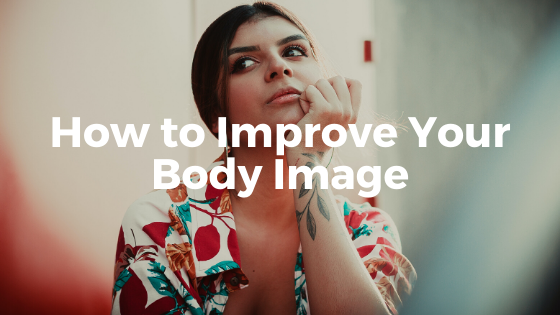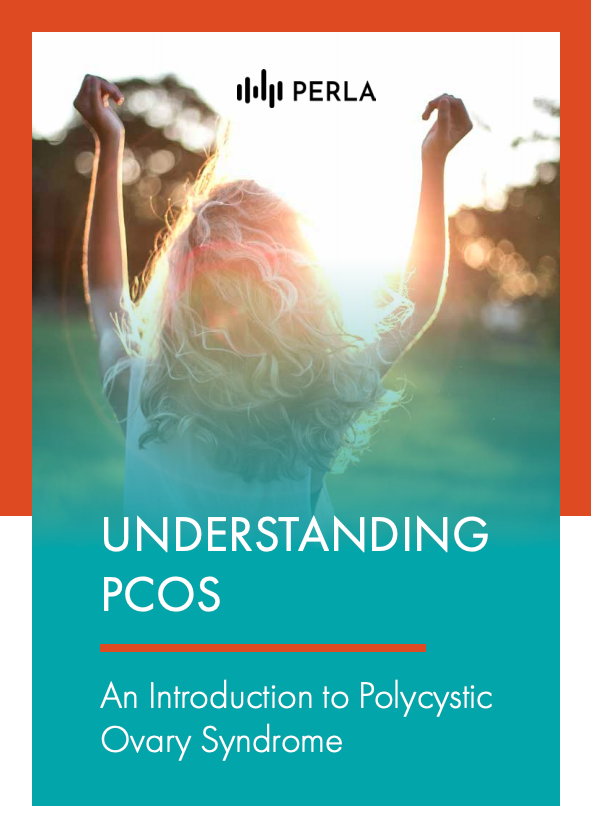Being diagnosed with a chronic condition such as PCOS can drastically affect someone’s self-esteem and can impact many aspects, such as your body image. Taking good care of yourself is more important than ever during these times.
What is Body Image?
Paul Schilder first discussed the concept of body image in the 1930s and defined it as: “The picture of our own body which we form in our mind.”1 He argued that body image is not only based on how we see ourselves, but is also influenced by our attitude and interaction with others.
Body image in simple words is a person’s perception, thoughts, and feelings about their body. It includes both negative and positive perception and judgment of the body’s size, shape, and weight. Body image is also influenced by individual and environmental factors including family, social pressure, mass media, and culture.2
The four aspects of body image3
- Perceptual: the way you see yourself
- Affective: your feelings about the way you look
- Cognitive: your thoughts and beliefs about your body
- Behavioral: what you do in relation to the way you look
Body Image Issues
Do you have a healthy body image? Studies show that up to 31.8% of adult women4 and 80% of postmenopausal women5 in the U.S. are dissatisfied with their bodies. In addition, body dissatisfaction—a person’s negative feelings and thoughts about his or her body—is more pronounced in countries where people have a Western lifestyle.6
Our current culture uses body size and shape as important criteria in judging attractiveness and social acceptability.7 You learn from early childhood that slim is beautiful and fat is undesirable. However, it’s important to note that body image is transitory and open to change.
Women with PCOS have to deal with many issues about their physical appearance including weight gain, acne, excess hair growth on the face and body, and hair thinning. It’s easy to become unsure of your looks and have self-esteem issues when your body is coping with unwanted changes.
Body Image and Health
Body image is an important aspect of health. People who practice self-acceptance are generally happy and comfortable with the way they look. If you have a positive body image, you are less likely to be influenced by unrealistic images in the media and society’s pressure to look a certain way.
Healthy self-esteem contributes to a positive outlook and behavior, resulting in a balanced lifestyle with healthier attitudes about food and exercise. On the other hand, a person with body dissatisfaction is at increased risk of developing eating disorders as well as anxiety and depression.8
Getting Help
If you feel like your self-esteem issues are too much to handle alone or if you are developing unhealthy eating or exercise habits, seeking professional help is a good idea. Speak to your doctor, therapist, or your PCOS care team.
Tips on How to Improve Your Body Image
These 5 tips might be helpful to get you started on your journey towards a better body image:
- Learn to appreciate and accept yourself.
Focus on what your body can do, and not on what it looks like. Your skin, your body shape, the number on the scale are just some aspects of you. People are so much more than their physical selves.
- Always be kind to yourself.
We seek compassion from people, we stick to friends who motivate us. So why can’t we be compassionate to ourselves? Your thoughts affect how you feel and behave. Resilient people practice self-compassion when faced with feelings of personal inadequacy. Practice speaking to yourself like a friend would.
- Stop comparing yourself to others.
Body dissatisfaction can cause a distorted body image that is not true. But you must realize that there is no such thing as a perfect body. People come in all shapes and sizes. Diversity is our strength and it’s what makes life interesting.
- Take care of your body.
Focus on health-related goals and not on losing weight. A negative body image can make you fixated on reducing your weight or changing the shape of your body, and can easily lead you to unhealthy practices with food and exercise. But some aspects of you are determined by your genes. For instance, you cannot simply change your height or bone structure. So these practices rarely achieve the desired result and will only make you feel more disappointed.
- Acknowledge the problem.
Learn about your body, and what impact your body image has on you. Learn about the dangers of frequent dieting, nutrition information, and the cultural stereotypes of the perfect body. By understanding your issues, you are doing your part in managing them. This will also help you make informed decisions about your health and medical care.
Conclusion
Working on your body image is an important part towards a happy and fulfilled life. You can start working on improving your body image for example by starting to journal, write down your thoughts and reflect on them. It might also be worth talking to somebody about it, as they may have new inputs and insights for you that may change your perspective, and let you see yourself in a new light.
Sources:
1.Schilder P. The Image and Appearance of the Human Body. The Journal of Nervous and Mental Disease. 1936;83(2):227-228. doi:10.1097/00005053-193602000-00051
2.Ata RN, Rojas A, Ludden AB, Thompson JK. Factors Influencing Body Image During Adolescence. Handbook of Behavior, Food and Nutrition. 2011:3221-3239. doi:10.1007/978-0-387-92271-3_201
3.Healey J. Positive Body Image. 372. Thirroul, N.S.W.: The Spinney Press; 2014.
4.Fallon EA, Harris BS, Johnson P. Prevalence of body dissatisfaction among a United States adult sample. Eating Behaviors. 2014;15(1):151-158. doi:10.1016/j.eatbeh.2013.11.007
5.Ginsberg RL, Tinker L, Liu J, et al. Prevalence and correlates of body image dissatisfaction in postmenopausal women. Women & Health. 2016;56(1):23–47. doi:10.1080/03630242.2015.1074636
6.Holmqvist K, Frisén A. Body dissatisfaction across cultures: Findings and research problems. European Eating Disorders Review. 2010;18(2):133-146. doi:10.1002/erv.965
7.O’dea J. Everybody’s Different : A Positive Approach to Teaching about Health, Puberty, Body Image, Nutrition, Self-Esteem and Obesity Prevention. Camberwell, Vic.: Acer Press; 2007.
8.Massimo Cuzzolaro, Secondo Fassino. Body Image, Eating, and Weight : A Guide to Assessment, Treatment, and Prevention. Cham, Switzerland: Springer; 2018.


